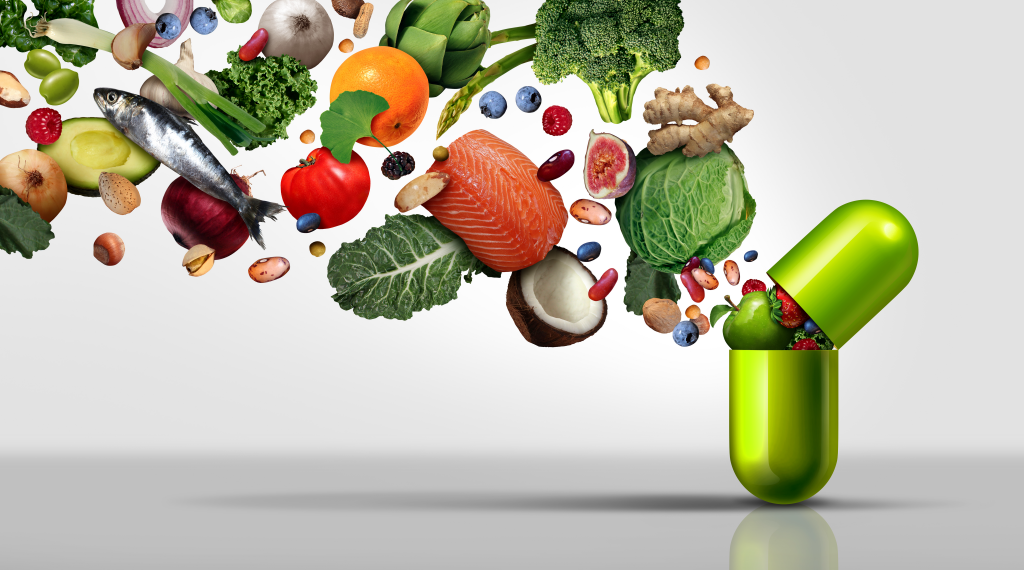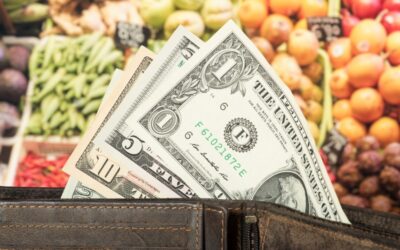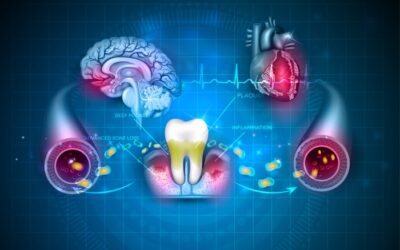Brain Health and Recovery: Food IS Medicine
Food can be an excellent tool to enhance brain health and recovery. However, if you thought the brain was a complicated system to understand, the data on nutrition is far more complicated. So, spoiler, there is no “perfect diet” to optimize brain healing after a neurologic injury. However, food is arguably the most powerful “therapeutic”.
How you ask?
Well, the journey of that bundles of molecules (food) from mouth to a single cell is long. And not all molecules that enter the journey are created equal. Some have noble intent (provide cellular energy, support cell structure and function). On the other hand, others are hell bent on wreaking havoc.
Knowing the difference is a critical component to empower you to make the best food choices to get the greatest therapeutic impact. That said, in this article you will learn how food is broken down and taken up into the cells (digestion). This mechanism is the foundation for understanding why our food choices matter when it comes to brain health and recovery.
Your digestive system and how it works
If you have been following me for a while, you know I love to provide a good story to help deepen understanding of critical concepts for neurologic rehabilitation. In this case, the story starts with that first bite of goodness that will eventually be used to impact the functioning of the little cells that make up the body. Often referred to as digestion.
Digestion is the process by which the body breaks down food into smaller molecules to be used by the body to sustain life. It is a complex process that involves the coordination of many different organs and enzymes in the body.
The process of digestion begins in the mouth, where food is chewed and mixed with saliva, which contains enzymes that begin to break down carbohydrates.
From the mouth, food travels down the esophagus and into the stomach, where it is mixed with stomach acid and digestive enzymes that break down proteins. The stomach also churns the food, breaking it down into smaller pieces.
After leaving the stomach, food enters the small intestine, where it is further broken down by enzymes from the pancreas and bile from the liver. Nutrients from the food are absorbed into the bloodstream through the walls of the small intestine.
The remaining waste products then move into the large intestine, where water is absorbed and the waste is formed into feces. The feces are then eliminated from the body through the rectum and anus.
Food IS Medicine
In summary, food is to be enjoyed. However, food is ALSO about function. Those broken down molecules are critical to cell survival, growth, AND repair. Food IS the most critical component to brain health and recovery after injury. In other words, food IS arguably the most valuable “medicine”. So the next time that piece of chocolate cake calls our name, I hope that you and I can choose wisely.
Articles you may be interested in:
Good, Evil,….. and Justice
I believe the hardest thing a human can do is to radically accept unfavorable circumstances. Maybe it's just me, but there is something deep inside every human that craves justice. Not just for ourselves, but for the world. Webster tells me that the definition of...
Exploring the Connection Between Sleep and Weight Loss
An estimated 50 to 70 million people in the U.S. are battling chronic insomnia and sleep disorders. These seemingly harmless conditions brought on by stress, changes in sleep schedules or lifestyles, and medications can be quite disruptive. Over time, it can lead to...
Soothing Stress With Sound Therapy
Seventy-six percent of U.S. adults reported that they experienced at least one symptom of stress in the last month such as headaches, fatigue, nervousness, anxiety, depression, and sadness. It’s easy to see why. Americans are among the most stressed out people in the...
12 Clever Ways To Healthy Eating on a Budget
Inflation and supply-chain disruptions have caused food prices to shoot up more quickly than in previous decades, making every trip to the grocery a costly and tricky affair. Despite the fact that food has become more expensive than ever, the federal minimum wage...
Volunteering: How Helping Others May Impact Overall Health
Volunteering is a pro-social behavior. It’s dedicating your time, attention, and resources toward helping people who are facing hardships in your community with no expectation of any reward or compensation. But there is something in it for you after all. Volunteering...
The Unseen Connection: Oral Health’s Surprising Impact on Heart Health
Did you know that the benefits of maintaining oral health go beyond your mouth? Oral health—the health of your teeth, gums, alveolar bone, etc.—plays a more significant role than you think. Sure, it keeps your gums and teeth clean and healthy. It also helps with basic...
Whispers to Wonders: Unraveling the allure of ASMR
You may have come across the term “ASMR” at least once, particularly if you’ve been on certain corners of social media. Be it TikTok, Instagram, or even YouTube, ASMR videos have been all the rage. Tapping, scratching, whispering, chewing—ASMR (autonomous sensory...
Mind Your Memory: Naturally Nurturing Your Cognitive Strength
Your memory is an intricate tapestry woven with knowledge, experience, and personal history, which forms the cornerstone of human cognition. However, as is the case with any tapestry, your memory will start to wear out with time, and your cognitive health may decline...
Silent Storms: The Atypical Form of Depression You Need to Know More About
Approximately 280 million people suffer from depression on a global scale. The figure is harrowing but doesn’t give you the complete picture because depression isn’t always visible. Sometimes, people experience symptoms related to it but can’t pinpoint what they’re...
Understanding The Link Between L-Theanine and Stress
Introduction Today, stress is one of the leading causes of physical challenges. Yes, what used to be a feeling of tension or a state of mind when faced with a difficult situation can impact you physically and even how you react and handle things emotionally and...











